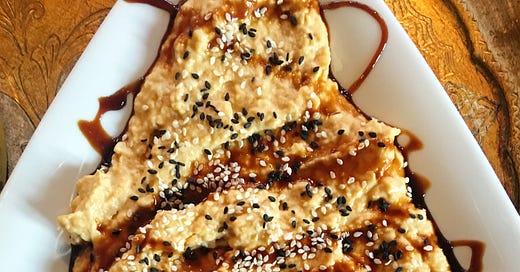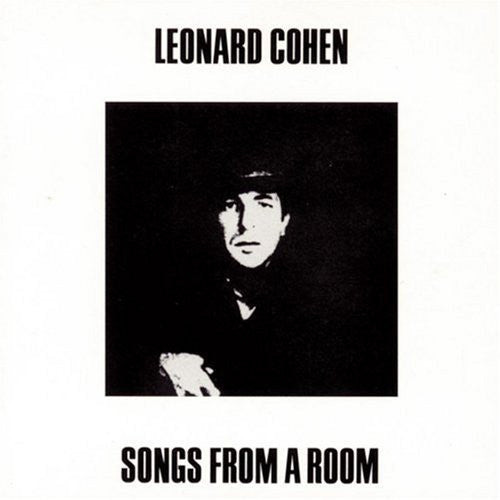Everybody knows
“There ain’t no cure for song writing.”
Sharon Robinson, My Time with Leonard Cohen, Art Gallery of Ontario, December 9, 2022
Sharon Robinson started writing songs when she was 11 years old. Already a skilled pianist with five years of classical training, Robinson convinced her mother to buy her a Craig sound-on-sound two track tape recorder. While the kids in the neighbourhood were outside riding their bicycles, she was geeking out on her new toy, layering music, mixing tracks, creating songs.
More than 2000 miles away, an up-and-coming poet turned singer named Leonard Cohen had just finished recording his second album, Songs From a Room. The album had mixed reviews; Rolling Stone declared that “It doesn't take a great deal of listening to realize that Cohen can't sing, period.” Still, critics were intrigued by the songs, with one noting “Cohen was a major creative force in contemporary songwriting.”
The beginning of a beautiful friendship
It seems unlikely that the paths of these two would somehow cross and lead to an award-winning songwriting collaboration, one that spanned decades. But as Robinson told a rapt audience during My Time with Leonard Cohen at the Art Gallery of Ontario, from the minute the two met, there was an energy and connection. Robinson’s show last week was in honour of the opening of the AGO’s Leonard Cohen exhibit, Everybody Knows. Playing until April 2023, if you are here, go.
The singing came first. Along with Jennifer Warnes, Robinson first worked with Cohen as a backup singer for his 1979 Field Commander Cohen tour. They bonded over Courvoisier and cigarettes, long walks and deep conversations. It was in Tel Aviv that Robinson seized a moment that changed everything.
One sunny day in Tel Aviv, we were waiting for our bus in the lobby of our modest hotel. I noticed a piano in a sunlit corner and an idea came to me. I decided to step out of my lane and go for it. I went up to Leonard and asked him if he’d like to hear a melody I’d written. You can imagine my surprise when he immediately said, “Sure.” We went over to the piano and I played a simple melody that I thought he might like. He did indeed seem to like it. He started walking round and around the piano, in his dark suit and fedora, looking up at the ceiling as if his muse resided there, wringing his hands in thought. He walked around several times and said, “How many syllables is that, darling?” “Seven,” I said. He said okay. After several more revolutions, while I kept playing the piano, finally he stopped and said:
Summertime when will you come?
I wanna put my light things on
I wanna put my winter life away
Summertime I need a sunny day.I thought, huh, that’s beautiful. Wait, did I just write a song with Leonard Cohen?
She had indeed.
Little gems
From that moment, Robinson and Cohen kept making music together. As Robinson noted, the song always started with Cohen’s poetry. With the exception of that first magical moment, the lyrics were already born, with verses sometimes years in the making.
With multilayered influences including rabbinical teachings, Buddhism, the work of other poets and a deep curiosity, Cohen’s writing came to rich life with Robinson’s melodic soul. She noted, “When you create a little gem of a song, it can be a mirror into the well of human emotion. You don’t know how you got there but it keeps you coming back.” And as Bob Dylan said, you don’t write the songs anyhow.
Themes of death, love, beauty, found especially in the works of Spanish poet Federico García Lorca, informed a life’s work of writing for Cohen. His complex, lyrical and profound lyrics, not the stuff of pop music, found an audience nonetheless. Cohen’s last tour, Old Ideas, started in tiny halls and became a five-year affair global in arenas from London, Vienna and Auckland to Hamilton, Halifax and Helsinki, packed with fans of all stripes.
We were lucky to see Cohen and Robinson on this tour when they played Radio City Music Hall in New York. An iconic setting and even more iconic performers, playing to an audience that would have adored them even if they played Mary Had a Little Lamb. Instead, we were feted with the incredible canon of a lifetime of music magic: Dance Me to the End of Love, Suzanne, Tower of Song and the Cohen-Robinson collabs of A Thousand Kisses Deep, Alexandra Leaving, Waiting for the Miracle and Everybody Knows.
Everybody knows Leonard Cohen. You should know Sharon Robinson too.
Butternut squash and tahini spread
From Jerusalem, Yotam Ottolenghi
In honour of that seminal moment in Tel Aviv, might I offer a wonderful spread from Ottolenghi’s Jerusalem cookbook? It’s a delicious way to take advantage of winter squash, with Ottolenghi’s signature and unusual blend of flavours.
Note: Date syrup is a natural sweetener with depth and richness. It can be found at health food shops or specialty grocers.
Ingredients
1 large butternut squash, peeled and cut into chunks (about 2½ lbs/ 970 gr)
3 tablespoons olive oil
1 teaspoon ground cinnamon
½ teaspoon salt
3 tablespoons tahini paste
½ cup (120 gr) Greek yogurt
2 small garlic cloves, peeled and crushed
1 teaspoon mixed black and white sesame seeds (or just white, if you don't have black)
1½ teaspoons date syrup (see headnote)
2 tablespoons chopped coriander
Heat the oven to 350F. Spread the squash out on a medium-sized baking tray, pour over the olive oil and sprinkle on the cinnamon and salt. Mix well, cover the tray tightly with tinfoil and roast for 70 minutes, stirring once during the cooking. Remove from the oven and leave to cool.
Transfer the cooled squash to the bowl of a food processor, along with the tahini, yogurt and garlic. Roughly pulse so that everything is combined into a coarse paste.
To serve, spread the butternut in a wavy pattern over a flat plate and sprinkle with sesame seeds and a drizzle of date syrup. Finish with the chopped coriander and serve with pita bread or crackers.






